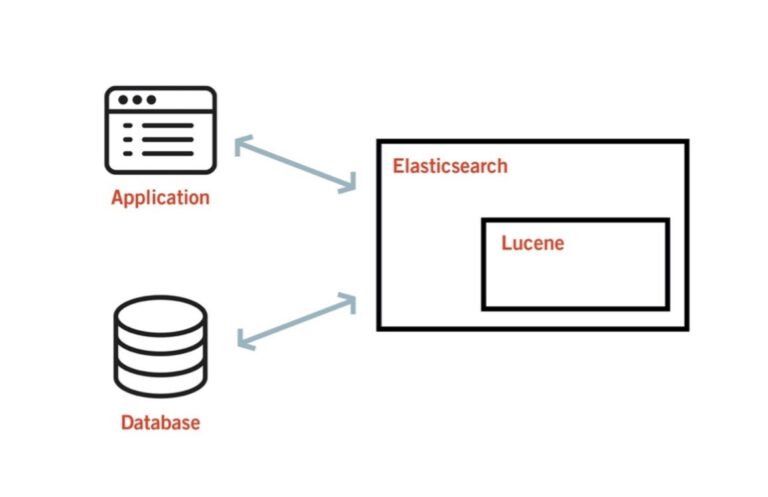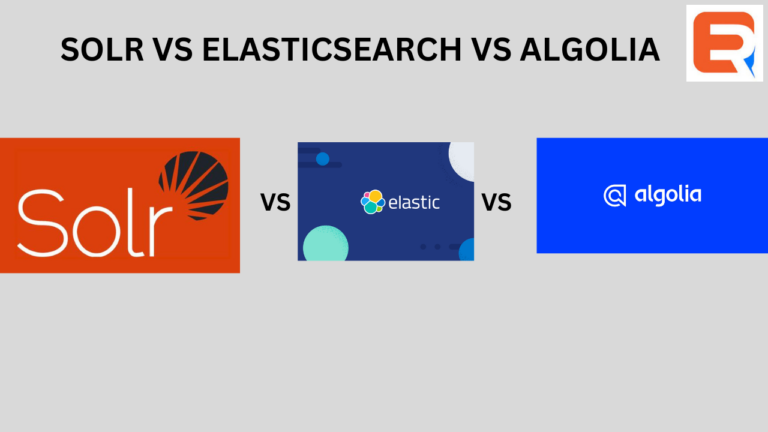When it comes to search engine technologies, two prominent names often come up: Elasticsearch and Lucene. Both are widely used and highly regarded in the field of information retrieval. While Elasticsearch is built on top of Lucene, they serve different purposes and offer distinct features. In this article, we will explore the differences between Elasticsearch and Lucene, shedding light on their key characteristics, use cases, and how they complement each other in the world of search.
Underlying Technology:
Lucene:
Lucene is a Java-based, full-text search library that provides the foundation for building search functionality into applications. It offers powerful indexing and retrieval capabilities, enabling developers to create their own search engines or integrate search features into existing systems. Lucene operates at a low level and provides a rich set of APIs for advanced search functionality.
Elasticsearch:
Elasticsearch, on the other hand, is a distributed search and analytics engine that builds upon Lucene. It provides a RESTful interface and scalable architecture for real-time search, analysis, and storage of data. Elasticsearch is designed to be highly available, fault-tolerant, and capable of handling large volumes of data across multiple nodes.
Use Cases:
Lucene:
Due to its low-level nature, Lucene is often used as a foundational component for building customized search solutions. It is ideal for developers who require fine-grained control over the indexing and retrieval processes. Lucene can be employed in various scenarios, such as creating search functionality within websites, implementing search in desktop applications, or building specialized search engines tailored to specific domains.
Elasticsearch:
Elasticsearch is well-suited for scenarios that demand scalability, distributed search, and real-time analytics. It shines in use cases that involve large amounts of data, such as log analysis, monitoring, and e-commerce applications. With its distributed architecture, Elasticsearch enables horizontal scaling and provides robust search capabilities across multiple nodes, making it a popular choice for handling big data and high query volumes.
Features and Functionality:
Lucene:
As a search library, Lucene offers a rich set of features for indexing and querying textual data. It provides support for various query types, including term queries, phrase queries, wildcard queries, and more. Lucene also offers advanced capabilities like fuzzy matching, relevance scoring, filtering, and sorting of search results. Its flexible API allows developers to fine-tune the indexing process and implement complex search logic.
Elasticsearch:
Building upon Lucene, Elasticsearch inherits its powerful search capabilities and extends them with additional features. Elasticsearch introduces a distributed architecture, enabling horizontal scaling, replication, and automatic sharding of data across multiple nodes. It provides real-time search and analytics, making it suitable for applications that require up-to-date insights from large datasets. Additionally, Elasticsearch offers built-in support for features like faceted navigation, geospatial search, and aggregations, simplifying the implementation of complex search functionalities.
Community and Ecosystem:
Lucene:
Lucene has a vibrant open-source community with a long history of development and contributions. It is widely adopted and has an extensive ecosystem of libraries, frameworks, and tools that leverage its search capabilities. The community provides active support, regular updates, and extensive documentation to assist developers in utilizing Lucene effectively.
Elasticsearch:
Elasticsearch has gained significant popularity due to its powerful features and ease of use. It boasts an active and rapidly growing community, constantly enhancing the software and developing additional plugins and extensions. The ecosystem around Elasticsearch includes tools for data visualization, log analysis, and monitoring, further expanding its capabilities beyond traditional search.
Conclusion:
In summary, Lucene and Elasticsearch are both powerful search technologies with distinct strengths and use cases. Lucene provides a flexible and low-level search library suitable for developers who require fine-grained control over search functionality.




